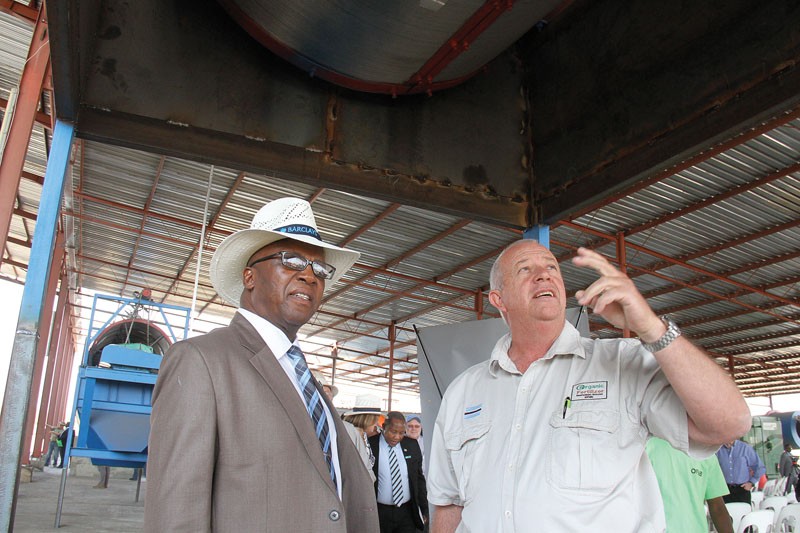Organic fertiliser manufacturing plant opens
Baboki Kayawe | Friday September 9, 2016 15:16


The company, registered in 2011 and has been operational on a small scale, utilises animal waste products mainly in the beef and poultry industries; deviating from the commonly used agro-chemicals fertilisers.
Now boasting state-of-the-art machinery and technology, OFMB managing director, Michael Hallam vowed to transform farming in the face of climate change.
Last year, the company supplied 3,200 tonnes into the local market. OFMB had orders double the amount, but regrettably the drought restricted that.
Over 1,000 tonnes of organic products were exported to the South African market.
“We hope this year to at least quadruple that. This year we are aiming for 10,000 tonnes into the local market and 4,000 tonnes into the export market,” Hallam said.
Consequently, new products were launched to match the revolution happening in fertiliser products as the company’s suppliers are blending and also introducing products to the market.
“Bio-organics and boosters are all being included in our fertilisers as additives to ensure maximum reactions in the soil and boosting production for our farmers,” Hallam said.
The Pandamatenga blend, suited for that area, as well as Okavango Eco Fertiliser meant for areas ecologically sensitive to chemicals, are the latest products offerings.
With the latter, 1,000 farmers who have never used fertilisers would be supplied with an expectation of massively increasing their production and income.
“We are also introducing some organic pesticides and fungicides to the market as well,” he said.
Minister of Agriculture, Patrick Ralotsia hailed OFMB for augmenting the common agro-chemicals fertilisers. He said under the Integrated Support Programme for Arable Agricultural Development (ISPAAD) his ministry has had blanket application of fertilisers.
“However, we have since informed farmers that it is pre-requisite for the coming ploughing season that soil testing is core to fertiliser requirement,” he said.
He stressed that the country must move away from blanket application of fertilisers and condemned the practice as treating an unknown problem.
Ralotsia called on farmers to do smart farming, as soil fertility decline is generally widespread throughout the SADC region owing to a range of factors such as depletion of soil nutrients and poor agricultural practices.
“Raising the levels of organic and non-organic nutrient applications and good agricultural practices including conservation agriculture will not only improve soil fertility but also reduce environmental costs and offer interesting options for smallholder farming intensification,” he said.
